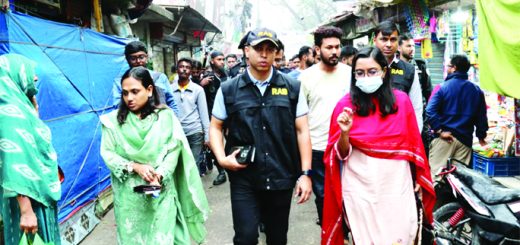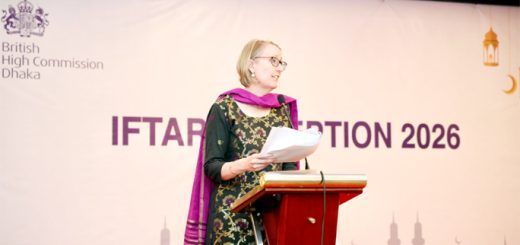Education Policy: Dysfunctional democracy and our politicised education system

Independence was our long-cherished dream — a dream of over 1000 years —- that the Bengali nation wished for from generation to generation. When it became true in 1971, we, the people of Bangladesh, were deeply enthusiastic that we had gained the freedom to establish our self-rule. A new government was installed with a new Constitution. We were ready to build a new nation self-reliant and self-dependent in our struggle for economic upliftment and emancipation of the marginalised groups. Our core weapon in that war was democracy – the first basic principle of our constitution. But very soon, we lost our path to democratic dispensation in every sphere of our efforts, and our hope for freedom then gradually faded out including the arena of education.
The rule of the people, by the people, for the people had utterly become an unauthorised dream to us, as our educated people were totally unable to save democracy here and hence, lost the credit of being a self-ruled nation. Self-rule needs the guarantee of people’s right to live without fear and the responsibility to be self-ruled lies in the decision of the educated, enlightened class in a civilized state. This class has to decide whether they should selflessly serve the nation to build strong nationhood or serve the ruling government and for the matter of that the vested class to be subservient to the ruling class for minor personal gains of perks and packages. History shows that our learned persons chose the second path to be subservient to the ruling elites and proved that the education we gained is only to serve the government most loyally as modern slaves, not as a free man having self-dignity within.
We have an education system inherited from the British designed to meet the colonial needs. The British needed some local clerks as so-called educated persons among us to continue their colonial domain and rule in the sub-continent. Likewise, our rulers in independent Bangladesh also needed and still very much in need of such educated people who will only abide by their orders, not the wish of ordinary people — the tax payers or the wage-providers of the government. Unfortunately, we have been serving the purpose of our rulers who want to rule us as neocolonial masters. Reform in the education system happened many a time in Bangladesh since independence, but that was not enough to build a nation to keep its head upright. We have many models of education to follow, but still, we don’t have one of our own to pursue which may make our people thinking citizens to raise a free democratic nation.
The first Education Commission was set up soon after the independence of the country with Dr Kudrat-e-Khuda as its chairman. The commission published the first education policy of Bangladesh in 1974 in line with the country’s purely secular constitution. However, after the regime change in 1975, the education policy was shelved forever and the country’s education system continued to run with centuries-old ideals and infrastructure. However, in the later phases of political development in Bangladesh, several other commissions were set up as per the wish of the men in power. Four education commission reports have been promulgated till now along with two full-fledged education policies. Very sadly, most of the promises and aspirations of those policies never came into effect due to a lack of a legal framework that would oblige and enable both the government and the citizens to abide by the provisions made by the policies. Now we have an education policy enacted in 2010, but an act of law to implement it is yet to announce.
We are living, as claimed by the officials, in the age of the 4th Industrial Revolution (4IR) where artificial intelligence (AI) is eying to take the driving seat of the present civilization. Where sustainability is now the basis of consideration in every development aspect and hence, we cannot overlook the quality of education that we offer in our classrooms. The United Nations (UN) in its goals of sustainable development promises not to leave one behind. SDG 4 underlines quality education for every child — irrespective of wealth, color, creed, religion, sex, or region. Inclusiveness should be the principal priority of our education system. We must not bear the burden of different curricula for the interest of different interest groups. We have general education, madrasa education (both Alia and Qoumi), vocational and technical education, English medium education (English version inclusive) and in some cases education for particular sects. The most interesting thing is that the language stream (mother tongue) is much below the weighted average level of standard.
Where lies the inclusiveness and for whom is the division in education still a mystery undisclosed even after 51 years of independence? We may have solace thinking that we have oneness in variety which, as Tagore narrated, is essential for nationhood. But still, we have no national consensus for making a unique identity as a nation, because we are far away from the history where we fought together as we are one having no spirit of sectarianism in mind, where we were there as a nation along the banks of the Padma, Meghna, and the Jamuna to live together.
We can’t ignore the importance of an inclusive education system for building a nation united in variety. We shall be one in variety which can be a reality only with an inclusive education system. We need a single spirit like the Japanese ‘Wa’. ‘Wa’ means we, and ‘Wa’ means we altogether for each other. What we lost in 1947, we can regain only when we think we are one. Fortunately, 1971 gave us this opportunity, but we failed as our educated people utterly failed to decode the message that was unfolded to us by the War of Liberation.
We were lucky enough to have a well-organized bureaucratic system inherited from the periods before 1971. They had patriotic zeal and devotion to the country and commitment to the nation. Most of them were imbibed with the spirit of war of freedom and took the responsibility of building the war-ravaged country after the independence. This was going on with enough success until the formation of a one-party rule in 1974. The bureaucrats became the party members and gradually lost their character as the servants of the Republic. They are enjoying the taste of power till today with further deviation in 1996 to be a beneficiary of an abrupt power change headed by a seasoned bureaucrat of Pakistan time. The distracted bureaucracy is yet to find its right path as public servants.
After 50 years of Independence, we now have a lot of certified graduates, not skilled enough to tackle the job hurdles, or not having enough intellect to handle the leadership crisis. They are (if not all) mostly not employable to accomplish the assignment(s). The sad wounding in our legacy of education is that we have very successfully destroyed the moral basis of our education. Therefore, it has become easy to blame the education that we receive in schools, colleges, and universities at the primary, secondary, and tertiary levels for our failure to build a nation accountable to the people by words and deeds.
We are learning morality by taking lessons from the faiths we believe in ignoring the universal appeal of religions. We learn thus to emphasize daily religious practices, where valuing morality lacks importance in performing our human responsibility. We have forgotten our duty towards our family, our community, our society, our state, and our very own nation. As a whole, we forget that we are social beings. We are being divided uninterruptedly from minor to minuscule. The ‘divide and rule’ policy still is playing a major role as our political principle.
To be subservient, it is enough for a nation to endure an undemocratic education system, because, our mighty kings like ‘Hirak Raja’ of Satyajit Ray know ‘the more we know, the less we obey’.
(The writer is a PhD researcher on Human Rights Education).





